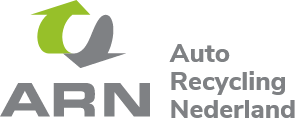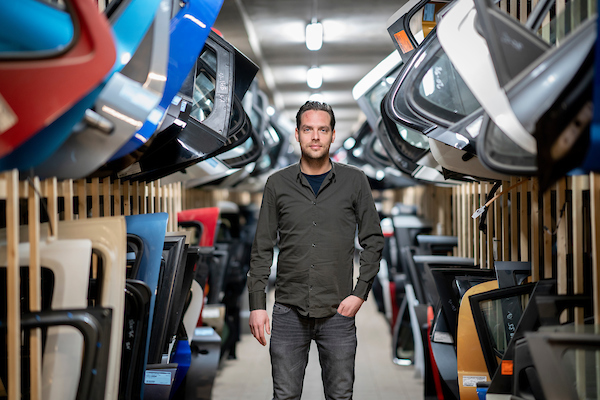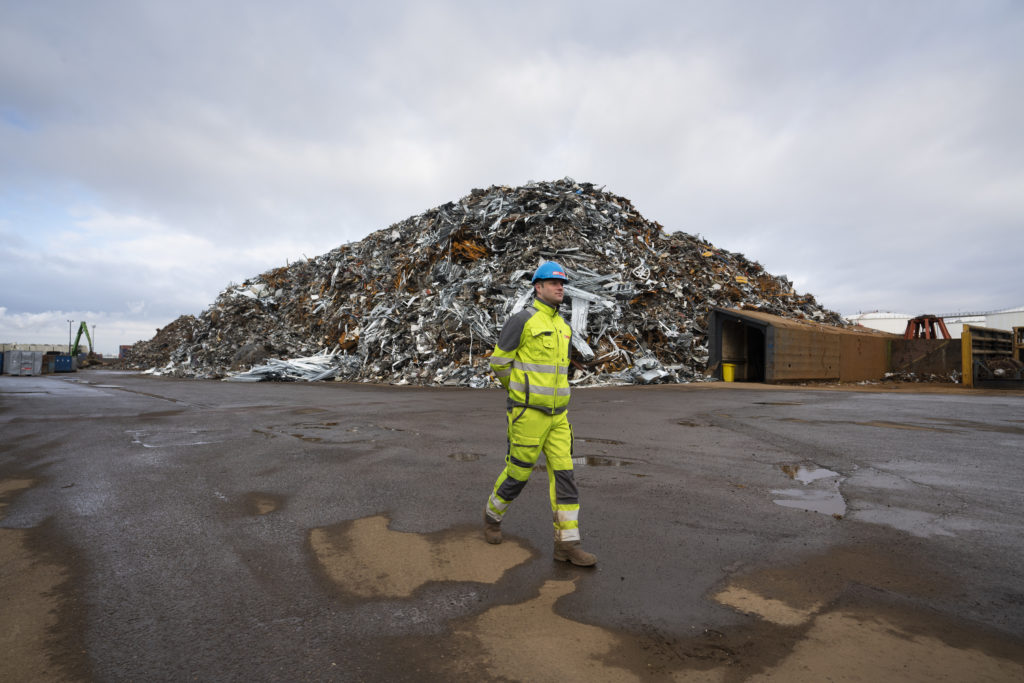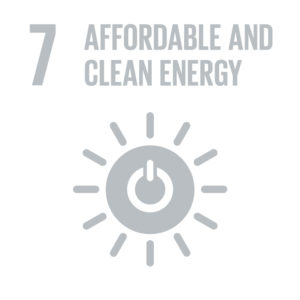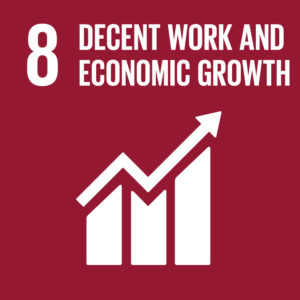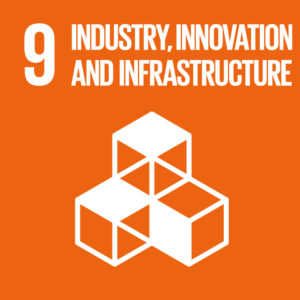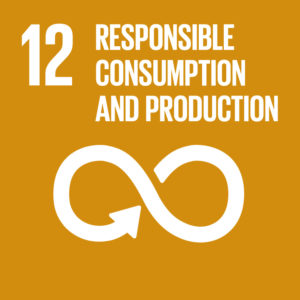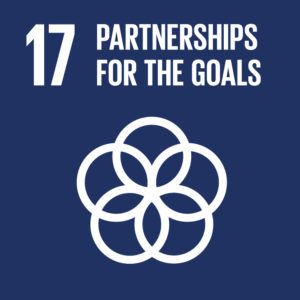The unexpected repercussions of the pandemic
2021 was a dynamic year for car recycling
The corona pandemic – a crisis that has hampered many sectors, to put it mildly – also dominated 2021. But what was 2021 like for the car-recycling sector? To find out, we asked a car-dismantler, a shredder company, and ARN.
The car-dismantling company: Used Car Parts
Martijn Pronk, founder and owner of Used Car Parts in Swifterbant, reckons his company enjoyed huge growth in 2021. “We acquired a 7,000-square-metre, completely covered property. In terms of personnel, we expanded exponentially from seven employees to 25. It might have been even better without the corona crisis, but that’s something we’ll never know for sure. One thing I can be sure of though: I cannot say we suffered from it.”
Some 95 per cent of Used Car Parts’ activities take place indoors. Thanks to the new building they now have plenty of storage capacity. “Actually, we’ve become more of an internet webshop than a car-dismantling company. Although we do, of course, dismantle all parts from the end-of-life vehicles that come in.”
The company has various departments: dismantling, photography, stock management, cleaning, packaging and sales. All employees have their own responsibilities and processes are automated as much as possible.
Core business
To enable them to sell parts in near-new condition, Used Car Parts uses the latest technologies. For example, after initial cleaning the parts are cleaned again by means of dry ice blasting, which is a completely dry and environmentally friendly cleaning technique. “As soon as the dry ice hits the product, it evaporates. The process brings reusable parts almost back to their original condition. After this cleaning phase, professional photos are taken of the parts. They are then inserted into sealbags, after which the appropriate descriptions and classifications are added so that customers can easily find the required product online.”
Pronk sets great store by proper packaging, just like brand-new parts are packed. “Thanks to our online-ordering activities, we have really moved on to the next phase. Parts for incoming orders are neatly vacuum-packed, and DHL picks them all up for delivery at 16:00 every day. It’s no longer something we do on the side; it’s become our core business.”
Focus and continuity
According to Pronk, an advantage of only selling parts that are in the webshop is that you can ask more realistic prices. “In the past, customers sometimes dropped by to look for a certain part. But, workwise, this was usually a distraction and more often than not you didn’t know whether you were asking too much or not enough. Now, if a part is not in our webshop stock, we don’t have it – even though there might still be a few end-of-life vehicles outside awaiting dismantling. The focus and continuity that this has enabled us to apply have fuelled our ability to grow. You can sell a lot more parts this way than you would if you left the end-of-life vehicles outside on-site.”
Not only is the company able to sell as many parts as possible, it also receives a higher price from the shredder company for what’s left of the end-of-life vehicles. “It’s because we ship the shells completely stripped, without residual waste. The smallest button or switch is removed, so that the shredder company doesn’t have to dispose of and recycle it. You also get the full price for iron, which is pretty respectable at the moment. Yes, looking back at 2021, we had a hugely successful year, one in which we set up a completely different concept and that now enables us to supply parts throughout Europe.”
The focus and continuity that this has enabled us to apply have fuelled our ability to grow. You can sell a lot more parts this way than you would if you left the end-of-life vehicles outside on-site
Martijn PronkOwner Used Car Parts
The shredder company: HKS
Stefan van der Wekken, director of shredder company HKS, says 2021 was a year in which many records were broken. The demand for commodities and the price of metals, in particular, skyrocketed. From a business perspective, it was fantastic. On a sadder note, however, the company was also badly hit by the passing of two colleagues.
More end-of-life vehicles processed
“Last year we realised a significant increase in the number of processed end-of-life vehicles, high production rates and good results,” assures Van der Wekken. “The death of our colleagues had a major impact but I’m proud of the way we managed to carry on, despite our grief at their passing. We processed more end-of-life vehicles than ever before and metal prices went through the roof.” The HKS director even thinks the pandemic had a positive effect on the metal-recycling sector. “The scarcity across the market drove up the price of raw materials.”
Processing residual metals
Van der Wekken doesn’t necessarily see the trend of delivering increasingly stripped down end-of-life vehicles as a positive one. “As a shredder company, we are perfectly capable of carrying out the high-quality recycling of residual metals, such as copper. This kind of work often has to be done manually at a car-dismantling company, but we have advanced machines for this kind of thing. Removing all residual metals makes a car shell worth less to us.”
But he accepts that they have little influence on the way end-of-life vehicles are delivered or on how many are delivered. “We just process what the market provides.”
Plastics-recycling line
In addition to implementing innovations in the processing of metal and residual flows, in 2022 HKS intends to build an additional plastics-recycling line. Chain collaboration will play a very important role in this, insists Van der Wekken. “If we are to recycle all the various types of plastics to a high-enough standard, car-dismantling companies, shredder companies and ARN will have to collaborate even more intensively.” He cites the removal of glass by car-dismantling companies as a good example of a promising new form of collaboration. “As a shredder, we prefer to receive end-of-life-vehicle shells without glass.”
If a car-dismantling company registers with ARN for glass dismantling it can participate in the so-called Glass Indicator. ARN will then visit the company to take an inventory of all the glass that is present in end-of-life vehicles and car doors and to install a special container on the premises in which it can be collected. From that moment on, all glass from end-of-life vehicles is removed by the car-dismantling company. “If a car dismantling company has a Glass Indicator, HKS only accepts end-of-life vehicles without glass from that company.” These end-of-life-vehicle shells command a higher price. ARN arranges for the full containers to be transported from the car-dismantler to a glass-recycling company, where it is converted into pure raw materials for making things like bottles and insulation materials.
Chain collaboration
The lines of communication between HKS and ARN are short, in all kinds of areas, not just in glass recycling. “Of course, we also collaborate closely because we took over the Tiel factory in 2020.” Although it was a good year business-wise, Van der Wekken identifies challenges on the horizon. “The composition of cars is changing. Up till now we have always been able to adapt our machinery and processes so that we can maintain our high recycling percentages. However, some materials, such as plastics, are making this increasingly difficult. And this is what makes chain collaboration so important!”
As a shredder company, we are very well able to recycle the last residual metals, such as copper, in a high-quality manner
Stefan van der WekkenManaging Director HKS
ARN collaboration with chain partners
“Far from business as usual”
Comparing 2020 with 2021, ARN’s Erik van der Zwet-Slotenmaker insists that the latter was a better year for car-dismantling companies. “Despite the various lockdowns, our sector stayed open. That said, it was far from business as usual. As a result of our en-masse working from home, there were fewer traffic accidents, so fewer spare parts were needed. However, most ARN-affiliated companies did not experience an excessive loss of turnover. For many companies, fewer over-the-counter sales were compensated for by growing online sales. Looking back, for ARN it was a reasonably positive year. But what really concerns me at the moment are the high prices being paid for end-of-life vehicles and, for example, catalytic converters. They are market-driven prices, but they are inadvertently setting completely different forces in motion. Consequently, due to competition, fair or otherwise, car-dismantling companies are receiving fewer end-of-life vehicles, or at least less complete ones. On a personal note, I was delighted to welcome four new affiliated companies. And finally, it was good to be able to make company visits again; in contrast with what was a completely different situation in 2020.”
Compared to 2020, 2021 was a better year for the dismantling companies. Despite the various lockdowns, our industry remained open, although it was certainly not business as usual. However, most of the companies affiliated with ARN have not suffered too great a loss of turnover
Erik van der Zwet-SlotenmakerAccountmanager ARN
Sustainable Development Goals
For the fourth year, ARN is benchmarking itself against the Sustainable Development Goals (SDGs) with the motto ‘lean and green’ in mind. The coloured SDGs shown on the right apply specifically to the content of this page.
